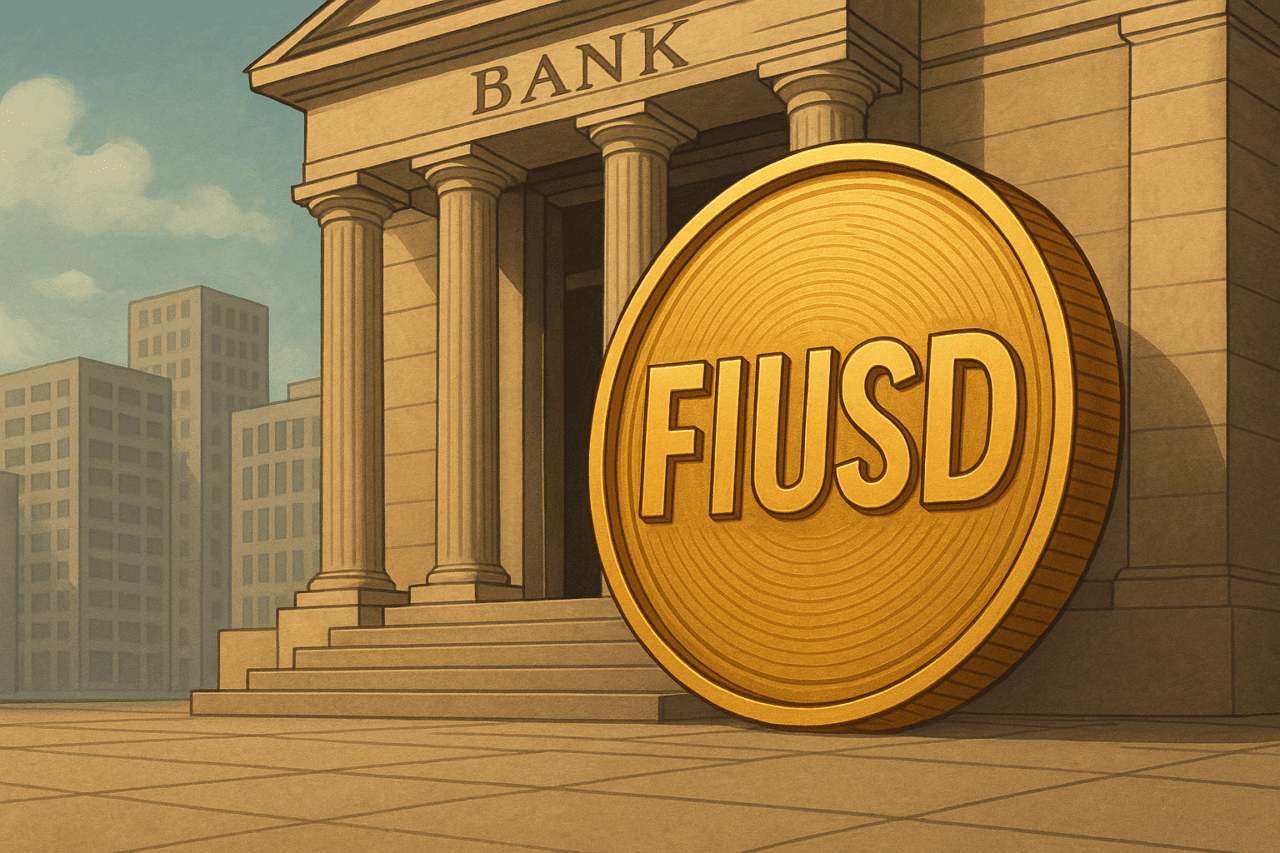
- Fiserv is leveraging Paxos, Circle, and Solana to launch FIUSD, a new stablecoin integrated into its global banking and payments infrastructure.
- FIUSD is designed for traditional banks and offers a compliant, SDK-based solution that maintains control over the customer experience while enabling 24/7 settlement and programmable payments.
- Fiserv is positioning FIUSD as a “bank-friendly coin,” making it possible for banks to participate and compete in the tokenized financial ecosystem.
In a move that signals growing mainstream adoption of digital assets, payments giant Fiserv has unveiled plans to launch its own stablecoin, FIUSD. The Wisconsin-based company is embedding the blockchain-based payments tool directly into its global financial infrastructure by the end of the year.
Fiserv will leverage stablecoin infrastructure from Paxos and Circle and will make FIUSD available to its clients via Web3 infrastructure player Solana. The new stablecoin will be made available at no additional cost to clients, giving them access to a new, interoperable digital asset service to integrate into their banking and payment flows.
Along with today’s announcement, the company also said that it is evaluating the use of tokenized deposits as an alternative to stablecoins. Tokenized deposits offer many of the same advantages that stablecoins do, such as speed, interoperability, and programmability. However, tokenized deposits are designed to align more closely with regulatory and capital requirements. This approach may offer banks a more familiar path to leveraging blockchain-based payment infrastructure without taking on the balance sheet complexities of non-deposit stablecoins.
For traditional banks, FIUSD offers a safe and controlled on-ramp into stablecoins. By partnering with a trusted infrastructure provider like Fiserv, banks can experiment with programmable money without needing to become crypto-native themselves.
Fiserv anticipates FIUSD to scale quickly, as it will be launched across its global network that includes relationships with 10,000 financial institution clients and six million merchant locations that process 90 billion transactions each year. Leveraging stablecoins and tokenized deposits in traditional banking and payments is expected to rapidly expand due to their ability to settle 24/7, streamline processes, increase efficiency, and power use cases where existing options may be limited.
“Through our privileged position as a trusted infrastructure provider to financial institutions, merchants, and their customers worldwide, we are relentlessly focused on delivering state-of-the-art innovation, efficiency, and choice to all of our partners,” said Fiserv Chief Operating Officer Takis Georgakopoulos. “With our scale, reach, and technology leadership, Fiserv is uniquely positioned to advance stablecoin-powered payments and help democratize access to blockchain financial services. Together with our other cloud-native banking and merchant platforms, we believe FIUSD will provide our clients with the efficiency and optionality they need to thrive in the evolving banking and payments ecosystem.”
Fiserv is differentiating FIUSD as a “bank-friendly coin,” stating that it enables banks to maintain full control of the customer experience. Unlike traditional public stablecoins like USDC or USDT, FIUSD is designed specifically for financial institutions. The stablecoin is delivered via an SDK that fits into Fiserv’s existing platforms and offers integrated fraud monitoring, risk tools, and a regulatory-first approach, positioning the stablecoin as a bank-grade alternative that blends innovation with institutional trust.
“FIUSD is designed with our clients in mind, a financial institution-friendly coin that simplifies stablecoin access through a secure and scalable ecosystem,” said Sunil Sachdev, Head of Embedded Finance at Fiserv. “We are excited to begin collaborating with our clients, partners, and other ecosystem players to create modernized financial experiences.”
Fiserv noted that this is the first of “a series of announcements” surrounding digital asset products it plans to release. Notably, the announcement comes the week after the US Congress passed the GENIUS Act, which will serve as a foundation for US banks to participate in a regulated digital asset ecosystem.
The news comes two months after Fiserv acquired Australia-based payment facilitator Pinch Payments. Fiserv has been involved in the payments space since it was founded in 1984. The company serves merchants, banks, and fintechs with payments tools, customer analytics, and fraud prevention technology. Fiserv is publicly listed on the NYSE under the ticker FI and has a market capitalization of $92.3 billion.
With FIUSD, Fiserv is not just staying ahead of the evolution of the DeFi economy, but it is also making it possible for banks to participate and compete in the tokenized financial ecosystem. As one of the first traditional movers in the stablecoin space, Fiserv could set a new benchmark as a bank-grade DeFi provider.